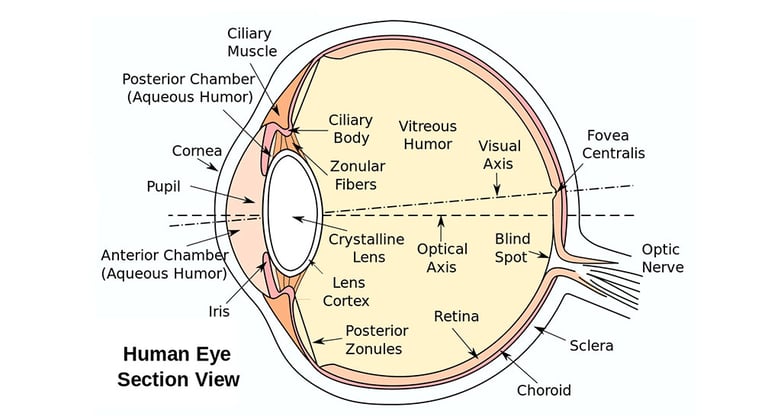Certain foods—from oily fish to broccoli and berries—contain nutrients to help improve eyesight and protect the eyes from cataracts and macular degeneration, two major causes of blindness, according to a leading ophthalmologist.
The UMHS Endeavour looks at information from a Loyola University news release and Medline Plus article about how certain foods can help your eyesight. The doctor's knowledge of nutrients that protect our eyes could come in handy for future doctors at American and Caribbean medical schools working with aging patients.
Kale, broccoli and sweet potatoes have many benefits for general eye health. That’s the word from Dr. James McDonnell, a fellowship-trained ophthalmologist focusing in pediatric Ophthalmology at Loyola University Health System in Maywood, Illinois. In a Loyola University news release that was featured on Medline Plus, Dr. McDonnell discussed the nutrients involved that protect eyesight. The UMHS Endeavour highlights Dr. McDonnell's statements from the news release and Medline Plus feature.
Nutrients That Help Eye Health
Below is a look at nutrients Dr. McDonnell says are important for eye health.
Astaxanthin. It protects the eyes from cataracts, macular degeneration and blindness. It’s found in seaweed and wild (not farmed) salmon. “It also aids in so many aspects of wellness that astaxanthin is my top recommendation for incorporation into your diet," Dr. McDonnell says.
Omega-3. A fatty acid found in oily fish (tuna, sardines, herring, salmon), omega-3 protects you from “dry eye and age-related macular degeneration,” Dr. McDonnell says.This fatty acid contained in fish protects against dry eye and age-related macular degeneration, he said.
Anthocyanins. Found in blueberries, bilberries and black currants, anthocyanins help “maintain the health of the cornea and blood vessels in every part of the eye,” Dr. McDonnell says."They also help reduce the risk of cataracts and macular degeneration as well as decrease inflammatory eye disease and diabetic retinopathy."
Zeaxanthin. Found in such dark green vegetables as kale, broccoli, collards, raw spinach and romaine lettuce, zeaxanthin “reduces the risk of age-related macular degeneration,” Dr. McDonnell says.
Bioflavonoids. Bioflavonids are found in tea, red wine, citrus fruits and cherries. They can lower the risk of cataracts and macular degeneration, Dr. McDonnell says. Beta-carotene (found in carrots, sweet potatoes, spinach, kale, butternut squash) protects us from night blindness and dry eyes..
Lutein. This is a nutrient that is good for the eyes. "The best source is from organic eggs laid by pastured organic hens. You can also take supplements made from marigold flowers," Dr. McDonnell said.
Vitamin D. This important vitamin helps prevent age-related macular degeneration, reduces retinal inflammation and improves vision. One gets it naturally from “safe sun exposure, fish oils, fatty fish and, to a lesser extent, beef liver, cheese, egg yolks and certain mushrooms,” Dr. McDonnell says. If you don’t eat enough of these foods, vitamin D3 supplements (available at health stores) are useful.
(Top photo) CERTAIN NUTRIENTS PROTECT EYESIGHT AS WE AGE: Dr. James McDonnell, a pediatric ophthalmologist at Loyola University Health System, talks about nutrients that help our eyes and which foods contain them. Image: Wikimedia Commons
About UMHS:
Built in the tradition of the best US universities, the University of Medicine and Health Sciences focuses on individual student attention, maintaining small class sizes and recruiting high-quality faculty. We call this unique approach, “personalized medical education,” and it’s what has led to our unprecedented 96% student retention rate, and outstanding residency placements across the US and Canada. UMHS is challenging everything you thought you knew about Caribbean medical schools.

Scott is Director of Digital Content & Alumni Communications Liaison at UMHS and editor of the UMHS Endeavour blog. When he's not writing about UMHS students, faculty, events, public health, alumni and UMHS research, he writes and edits Broadway theater reviews for a website he publishes in New York City, StageZine.com.















